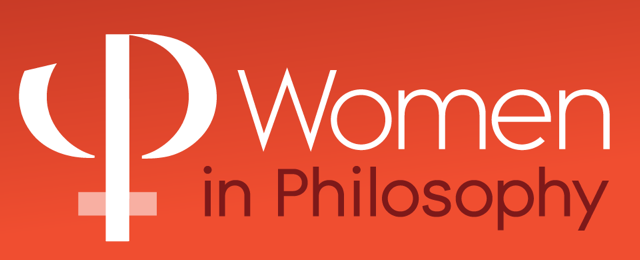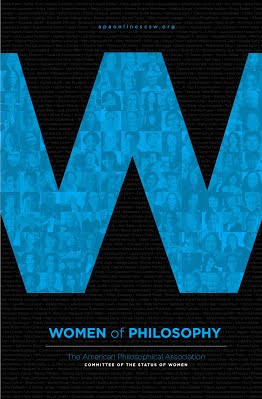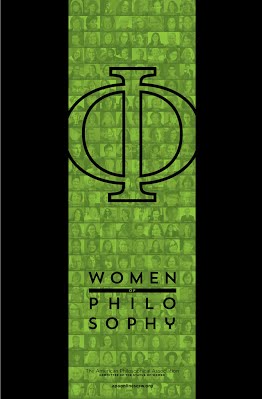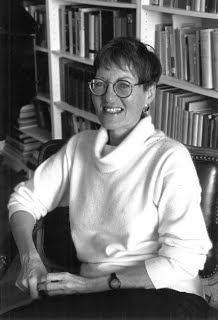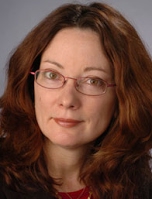Check out the Women in Philosophy series of the Blog of the APA!
Samantha Brennan: Remembering Sandy
Tom Digby: Sandra Barty's Secret Work on Masculinity
Lisa Heldke: In Memorium Sandra Bartky
Lynne Tirrell: Remembering Sandy Bartky
-
Highlighted Philosophers
Posted Sep 16, 2018, 11:34 AM by Prof KateMeena Krishnamurthy's Philosopher site includes political philosophers and philosophers from underrepresented groups that wrote guest essays or participated in interviews from 2013-2017. Although no need entries will be added, it is a wealth of information. Check it out!
A Call for Climate Changeby Linda Martín Alcoff Hunter College and CUNY Graduate Center The story in a nutshell about the climate for women in philosophy is this: Although there are more of us than ever, the climate is still bad. We need to take serious steps toward climate change, but the philosophy profession as a whole is as full of denial about this situation as Fox News is full of denials about global warming. Recently I was sitting in a coffee shop near NYU, reading the blog "What Is It Like to Be a Woman in Philosophy?" and finding myself, with some embarrassment, tearing up.1 The blog is over-full with stories of disrespect, harassment, sexual objectification, even an attempted rape at an APA conference. Where else but in the U.S. military are women the targets of such regular abuse by their own close colleagues? I have been in departments where new female graduate students are looked over as the new meat in town. At the department holiday party I attended just a few months ago, one of my female students said afterward, "That was a good party! No one groped me in the corner this year." Turns out that happened six years ago and she has not been back to a department party since that time. I have also known about consensual relationships that developed between male faculty and female students that seemed to be benign, but there continues to be an adverse effect on the general credibility of women students (even women faculty) when such relationships are even suspected: it raises the specter of favoritism and unfair advantages, a specter that can tar anyone's career. Even more disturbing is that, in the consensual relationships I have seen between male faculty and female graduate students, the women almost always drop out of the field. Causality is, of course, difficult to trace with any certainty, yet one begins to wonder. Perhaps the psychic shift from apprentice to lover creates a categor y transference that changes one's self-understanding. I remember vividly a brilliant young female philosophy student who was very shaken up by a come-on from her (much older) main professor, asking me, "Was that what all his compliments about my exams and papers were really about?" She later "chose" not to pursue philosophy. But the principal issue that comes out in sharp relief from the blog "What Is It Like to Be a Woman in Philosophy?" is not about harassment or come-ons but the thousand daily cuts that collectively dissuade women from staying in: the aggressive and peremptory dismissals in seminar, the a priori rejections and derision of feminist philosophy, the ignoring, the assumptions that affirmative action is the only reason someone has been accepted, the nasty notes put in mailboxes and under one's door, such as the note that just said "whore " in large letters. Some men have been writing into this blog with surprise, real concern, indignation. I take their concern to be legitimate, and don't think we should scoff too much at their surprise and naiveté. They live and work in a parallel universe, a profession without sexual overtones to be negotiated and managed, and most have never heard women talk in an honest way about the situation they experience. In my experience, women in our profession are, as a group, afraid to complain, loathe to complain, absolutely committed to not complaining. When I began editing the collection that became Singing in the Fire: Tales of Women in Philosophy more than ten years ago, I found that senior women, even women with tenure who had great jobs and enormous prestige, were quite fearful of looking like self-indulgent whiners or political activists rather than philosophers.2 Several declined my invitation to write for the book with letters outlining these concerns. They were afraid they'd lose male friends and support just by the act of truthfully describing their experiences of making it into the profession. And, of course, they were right to be afraid. We get reputations for being certain sorts of philosophers, for operating in certain sorts of ways professionally. And successful women who are attractive are whispered about, as using their sexuality for advancement. When even tenured and powerful women keep silent about this situation, it keeps well-meaning men in the dark, lets perpetrators get away with murder, and maintains the climate of victim-blaming. Reading the blog (and Singing in the Fire ) will also convey that there has been some significant change over the last 20-25 years. Many more women (at least white women) are in the field, without a doubt. Some female faculty are portrayed in the blog as hostile to women students, as even harassers themselves. I don't doubt these stories, but I'd want to underscore that the overall situation in philosophy is hardly one in which male graduate students are preyed upon sexually or experience objectifying remarks on a regular basis, as well as hostility in seminars and barely concealed disbelief that they might be equally smart. Some men may indeed get belittled, but (white) men as a group are not viewed with skepticism about their abilities or their right to be in the profession given their gender identity. Anecdotal reports need to be interpreted in light of an understanding of the overall situation. Statistics can help. Some Recent Statistics: In 2008 the percentage of PhD's earned by women in the U.S. in all fields was a respectable 46%.3 But, of course, this is not distributed evenly across the disciplines. Two-thirds of Ph.D.'s in Education were female; 58% of PhD's in the social sciences were female. Only 28% of PhD's in the physical sciences went to women, and only 22% of those in engineering. This is still a big increase from 1978, 30 years earlier, when only 10% of PhD's in the physical sciences went to women and 2% in engineering.
In terms of racial and ethnic identities, 23% of PhD's in 2008 were earned by minorities who reported their identities. Asians earned the most, 2,543, with African Americans earning 2,030, Latinos 1,765, and American Indians 123. Interestingly, there is a noticeable concentration of minority doctorate recipients in a small number of institutions, a noticeably greater institutional concentration than for the doctorates as a whole. This is an important phenomenon that requires analysis. I would suggest it largely accords with the situation in philosophy.4 In regard to philosophy, as we know, the numbers of women are much more comparable to the physical sciences than to the humanities, a fact that no doubt pleases those among us with closet or otherwise unexamined scientistic tendencies. The numbers are striking: 21% of employed philosophers are women, compared to 41% in the humanities as a whole. Also striking is the following. About 27% of PhD 's in philosophy have been going to women on average over the last 15-20 years (there may be a bump in a year here and there, but the average remains about this). In the mid-1980s the percentage was 24%. This indicates that we have been stuck. for perhaps three decades at a plateau of roughly one quarter of the profession, mysteriously unable to make significant gains beyond this. Another interesting set of data comes from Julie Van Camp's ingenious idea to compare the percentage of women in a department to its status in the Leiter, or the Philosophical Gourmet, Report.5 What is revealed is something of a reverse correlation, where the higher the percentages of women, the lower the rankings. Departments concerned about their Leiter ranking would be "rational," then, to forego hiring too many women. Van Camp helpfully lists the percentage of women in graduate departments, together with their Leiter rankings, even as these rankings have varied over the years. Departments listed at the top have the largest percentage of women, and then as one reads down the list the percentage of women faculty drops. To find the top 10 departments on Leiter's list, you have to drop down Van Camp's list to numbers 18, 20, 21, then to 37, 41, 56, 61, 62, and 64. The top rated department on Leiter's list comes in at #77 on Van Camp's list. I find this interesting. It reminds me of the point feminist historians made some years ago that our conventions of historical periodization needed to be changed. The Renaissance, it turned out, was not really a renaissance for women; we were being burned at the stake by the thousands, we lost property rights, the right to join guilds, our dominance of the health field, and so on. The period marked as "the Renaissance" by mainstream historians was a period of serious setbacks for women in Europe, both rich and poor, urban and rural. So this makes me wonder: When we say that Leiter's list gives us the "top departments," what are we really saying? For whom are these the top departments in which to study philosophy? Do we really only care about the guys? What is the problem with philosophy? This cannot be approached rationally, as Sally Haslanger has so effectively argued.6 Among other problems, there is a pretty obvious but largely unarticulated concern about the fact that the humanities, in general, has strong feminine gendered cor relations. The humanities are soft, qualitative , vague , and concerned with style. Philosophy's own self image does not fit well here, and thus it has a fear of its own feminization as the numbers of women in the field increase. Philosophy's self-image as the most rational of disciplines, where reason giving and critical thought rules along with purity and clarity and technical mastery, would be compromised by acknowledging its problems, such as irrational sexism and racism, much less addressing them. Recent historical and sociological analyses of the developments in the history of philosophy further suggest that the outcomes of our debates are not entirely determined by internal argumentation but also sometimes by external social conditions.7 We need also to consider the connection between the climate for women and the attitude toward feminist philosophy. I believe that women who believe they can avoid gender stigma by avoiding feminist philosophy are fooling themselves. They may rightfully choose to work in other areas of philosophy than feminist philosophy, but the assessment of their work may yet be compromised by the derision with which feminist philosophy is viewed nonetheless. One possible reason that feminist philosophy is rejected by so many in an a priori fashion is that it threatens to make philosophy accountable for its sexism. We thus need to make these connections manifest, and defend feminist philosophy as a valid enterprise, even while we fight for a climate in which women can do whatever form of philosophy they want. What Is to Be Done?
We have a political challenge here that needs to be approached politically. What this means is that women need to think politically about how to survive in the profession. They must gain allies, even partial allies, forego their illusions about the absolute rationality and meritocracy of the discipline, give up trying to win over recalcitrant members of the old guard, and instead work on building power bases. We should give up on trying to convince either the methodological center or the right-wing of the discipline. We should recognize that administrators are sometimes our most reliable allies: deans and provosts often know more about sexual harassment litigation, and, with some notable exceptions at Harvard, they may well be more socially egalitarian than our colleagues. The good news is that there is much ferment afoot, indicating that we can still legitimately encourage women to pursue philosophy careers. Examples include: PIKSI (Philosophy in an Inclusive Key), CUSP (Cultivating Under- represented Students in Philosophy), the Rutgers Summer Institute for Diversity in Philosophy, SWIP's various branches, the journal of feminist philosophy Hypatia, FEAST (Association for Feminist Ethics and Social Theory), FEMMSS (Association for Feminist Epistemologies, Methodologies, Metaphysics and Science Studies), CBWP (The Collegium of Black Women Philosophers), CPA (The Caribbean Philosophers Association), and others.8 In these sites and others new philosophical voices and approaches are having a chance to develop. The Leiter Report has been a serious problem. It works to reward convention and punish departments that take the risk of supporting an area of scholarship that is not (yet) widely accepted or respected in the profession. Hiring in the areas of critical race philosophy or feminist philosophy is not going to improve a department's ranking. As a result, philosophy departments are trying to outdo themselves in conformism and "tailism"—tailing the mediocre mainstream rather than leading. The APA Board has recently committed to providing its own source of objective information on departments so that graduate students will have more than Leiter as a resource. Perhaps the motivational str uctures that deter mine hiring practices may branch out from an exclusive concern with their rankings in the Leiter scale. I have been working for the past two years with Paul Taylor and Bill Wilkerson on a new rating system, not a ranking but a rating, to help those considering graduate school deter mine the best places to pursue philosophical work in feminist philosophy, critical race theory, American philosophy, continental philosophy, and GLBT studies. Our new guide, aptly named "The Pluralist's Guide to Philosophy," should be accessible on the web by the time this article goes to print, at http://pluralistsguide.org. We hope this guide will be shared and distributed and linked to other sites, encouraging a broader and more varied view of philosophy. The reality is, there are many different kinds of excellent philosophy being done today, and getting published. It is illuminating to look at examples provided by other similar disciplines, almost all of whom have been engaging for some time in a vigorous proactive effort to diversify. We don't even need to look at other fields in the humanities. Consider the American Political Science Association. The APSA represents a discipline that philosophers might be surprised to learn is not very diverse. Yet somebody has been doing some work. The APSA has designated a Task Force to assess their discipline for the 21st century, and charged it with assessing in particular the profession's breadth, vibrancy, and democracy. They also set up awards for mentoring minorities and an assessment system for judging whether introductory textbooks are inclusive. They have discipline wide surveys, online syllabi projects, and recognized caucuses and sections within their organization, as well as the usual committees, to foster communication, recognize leadership in the field, facilitate research and publication opportunities, and create for ums for developing theoretical models for the study of diversity. They have dissertation awards, book awards, teaching awards, and paper prizes specifically aimed at promoting diversity. On their website, the APSA lists as one of its "core objectives": "diversifying the profession and representing its diversity." We have some work to do. Endnotes
1. http://beingawomaninphilosophy.wordpress.com/ 2. Singing in the Fire: Stories of Women in Philosophy (Lanham, Maryland: Rowman & Littlefield, 2003). 3. The following statistics are available on nsf.gov. 4. The University of Memphis Ph.D. program in philosophy, for example, is well known for producing African American women philosophers in particular. There is a critical mass phenomenon that helps this work. It
does not necessarily augment the national standing of the department. I was accused a few years back by
a colleague of wanting to "bring down" the Syracuse philosophy department to the level of Memphis, a
charge that was interesting in light of the success of Memphis in its numbers of African Americans.
5. http://www.csulb.edu/~jvancamp/doctoral_2004.html 6. Sally Haslanger, "Changing the Ideology and Culture of Philosophy: Not by Reason (Alone)" Hypatia 23:2 (April-June 2008): 210-223.
7. See, e.g., John McCumber, Time in the Ditch: American Philosophy and the McCarthy Era (Evanston, Illinois: Northwestern University Press, 2001).
8. SWIP: http://www.uh.edu/~cfreelan/SWIP/ CUSP: http://philosophy.la.psu.edu/graduate/cusp.shtml Rutgers Summer Institute: http://www.philosophy.rutgers.edu/events/summer-institute
PIKSI: http://rockethics.psu.edu/education/piksi/
The Collegium: http://web.me.com/ktgphd/CBWP/Welcome.html The CPA: http://www.temple.edu/isrst/Events/CPA.asp FEAST: http://www.afeast.org/ FEMMSS: http://femmss.org/ Hypatia: http://depts.washington.edu/hypatia/ Originally published in Newsletter On Feminism and Philosophy Volume 11, Number 1, Fall 2011 The images in the banner for this site were taken from a larger image by Tasla Karoutsos on behalf of the Women in Philosophy workshop, originally hosted at Goucher College.
| Quick Links
APA American Philosophical Association Home Women in Philosophy Groups
Societies for Women in Philosophy (SWIP) WPHTF Women in Philosophy Task Force CBWP Collegium of Black Women Philosophers SPEP CSW Society for Phenomenology and Existential Philosophy IAPH International Association of Women Philosophers
PSA-WC
Philosophy of Science Association Women’s Caucus
FEMMSS Feminist Epistemologies, Methodologies, Metaphysics and Science Studies SAF Society for Analytical Feminism SSWP Society for the Study of Women Philosophers PhiloSOPHIA A Feminist Society SIFIP Society for Interdisciplinary Feminist Phenomenology FAB International Network on Feminist Approaches to Bioethics BayFAP San Francisco Bay Area Feminism and Philosophy Workshop WOGAP Workshop on Gender and Philosophy (Boston Area) |

